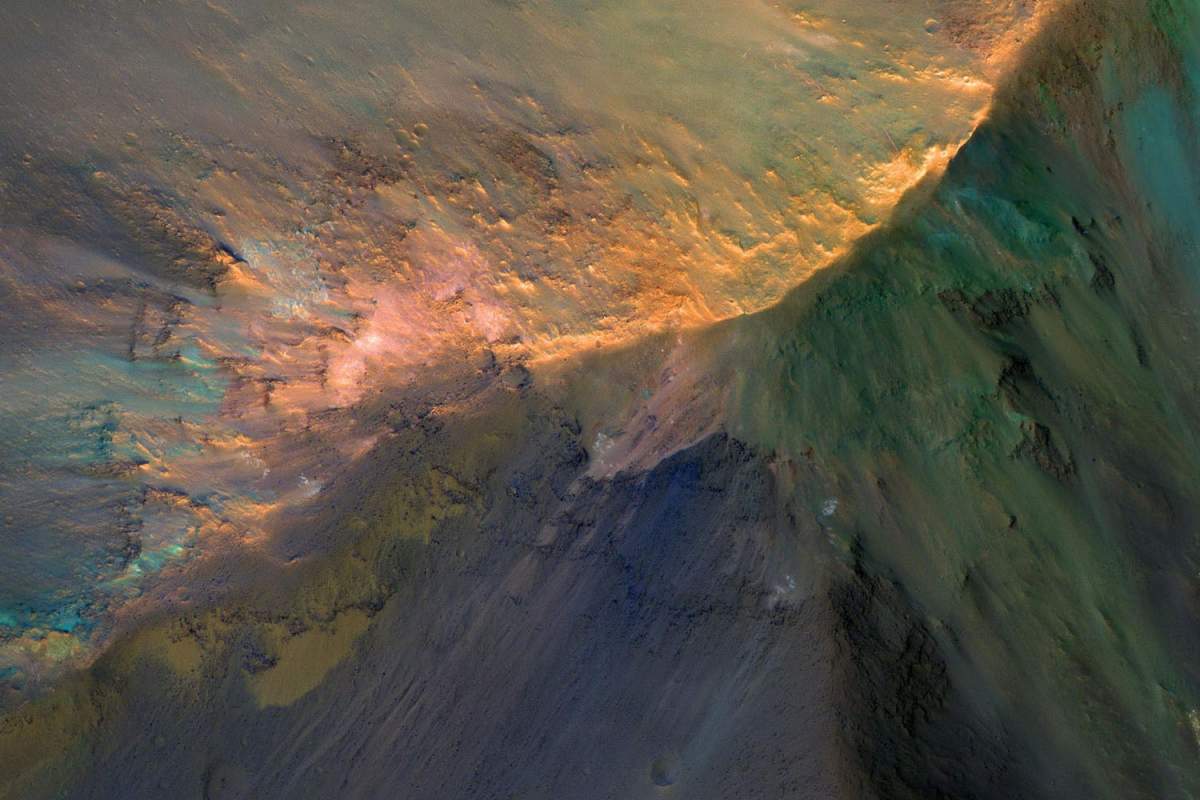
I just can‘t wait for humans to get to Mars. Ever since the 1960s researchers have been studying the possibility of altering the Martian environment to make it Earth-like and habitable. This hypothetical process is called terraforming.
As it naturally is, the Martian atmospheric pressure is so low that you need a spacesuit to survive on its surface, which is usually much colder than Antarctic winter. But terraforming could change that.
 A bike at the Johnson Space Center Planetary Analog Test Site. The analog test site has surface terrains meant to mimic Mars and the Moon. (Bobby Ketchum, Flickr)
A bike at the Johnson Space Center Planetary Analog Test Site. The analog test site has surface terrains meant to mimic Mars and the Moon. (Bobby Ketchum, Flickr)
Mars Was Warm...A Billion Years Ago
Geological evidence shows that billions of years ago Mars had a denser, warmer atmosphere. There was liquid water on the surface. Supporters of terraforming hope that when Mars became colder, the atmospheric gases became frozen or chemically combined in the crust.
Then various methods of rewarming the planet could re-instate an Earth-like atmosphere. Carbon dioxide is especially important. It‘s a greenhouse gas that would help trigger the needed warming.
MAVEN findings
Unfortunately, researchers using NASA‘s MAVEN spacecraft found that Mars was gradually losing its atmosphere to space. Unlike Earth, Mars has no magnetic field to protect its atmosphere from solar radiation.
In 2018, though, two researchers published the results of an analysis of spacecraft data about carbon dioxide on Mars. They considered several reservoirs of the gas. Some is frozen as dry ice in the Martian polar caps. Some is chemically combined in minerals.
Some is attached to dust grains, and some is trapped in water ice. The researchers concluded that all these sources combined fall short of the amount of carbon dioxide needed to terraform Mars.
Sources And Further Reading:
- Dormehl, Luke. "No, terraforming Mars isn‘t going to be possible in your lifetime." Digital Trends: Emerging Tech. July 31, 2018. Accessed November 14, 2018.
- Gohd, Chelsea. "Can We Terraform Mars to Make It Earth-Like? Not Anytime Soon, Study Suggests." Space. July 30, 2018. Accessed November 14, 2018.
- Bruce Jakosky and Christopher Edwards 2018 Inventory of CO2 available for terraforming Mars, Nature Astronomy, vol. 2, p. 634-639
- Steigerwald, Bob. Jones, Nancy. "Mars Terraforming Not Possible Using Present-Day Technology." NASA: Mars. July 30, 2018. Accessed November 14, 2018.
- Wenz, John. "Sorry, Elon. There‘s Not Enough CO2 To Terraform Mars." Discover Blogs. July 30, 2018. Accessed November 14, 2018.









